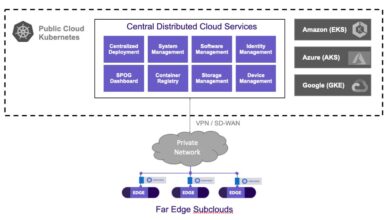Why Choose AWS As Career Option?

Key Takeaways:
Gartner predicts enterprise IT spending on public cloud will exceed 51% by 2025, emphasizing the present significance of the cloud.
AWS, as the foremost public cloud platform, shapes technology landscapes, democratizing innovation and fostering agility in IT infrastructure.
With AWS commanding 33% of the IaaS market, rapid growth, and high demand for professionals, pursuing an AWS career is strategic.
Cloud computing careers entail challenges like constant learning, evolving security concerns, and the need for a diverse skill set.
Based on the latest statistical findings, Gartner has revealed that the expenditure of enterprise IT on public cloud computing is likely to exceed 51% by 2025, which is more than half of the IT budget that will soon be dedicated to the cloud. This indicates that the cloud is not just the future; it’s the present reality shaping how organizations operate. In this paradigm shift, Amazon Web Services (AWS) emerges as a frontrunner, dominating the public cloud market with unparalleled innovation and reliability. As more than half of IT budgets are poised to be dedicated to the cloud, the demand for skilled professionals in AWS is soaring. The question then arises: Why choose AWS as a career option? In this exploration, we delve into the compelling reasons AWS stands out, offering a promising career path and an opportunity to be at the forefront of the transformative wave in cloud computing. From market leadership to rapid growth and diverse career paths, discover why AWS is not just a choice but a strategic move for those aspiring to thrive in the dynamic realm of cloud technology.
Impact of AWS
The impact of Amazon Web Services (AWS) on the technology landscape has been transformative, reshaping the way businesses operate and accelerating innovation across industries. As the leading public cloud platform, AWS has become the backbone for many organizations, offering a comprehensive suite of services ranging from computing power and storage to advanced machine learning capabilities.
One of the most profound impacts of AWS is its role in democratizing technology. Small startups and large enterprises alike can leverage the scalability and flexibility of AWS services, leveling the playing field and enabling businesses of all sizes to access world-class computing resources. This accessibility has fueled a surge in innovation, allowing companies to experiment, iterate, and bring ideas to market faster than ever before.
AWS has also been a driving force behind the shift to a more agile and efficient IT infrastructure. Organizations can offload the burden of managing physical servers and infrastructure maintenance, allowing them to focus on core business functions. This has led to cost savings, increased operational efficiency, and the ability to respond rapidly to changing market demands.
Furthermore, AWS has played a pivotal role in the rise of data-driven decision-making. With powerful analytics and machine learning tools, businesses can extract valuable insights from vast data, enhancing strategic decision-making processes. The impact of AWS extends beyond individual enterprises, fostering a collaborative ecosystem where developers, startups, and enterprises can share knowledge, collaborate on projects, and contribute to a vibrant global community.
Why and How to Pursue a Career in AWS
Whether you’re already an experienced IT professional seeking to take your career in a new direction or new to cloud computing (or IT, for that matter), there are several reasons why you should consider AWS. Here are a few of the more important ones.
Why AWS?
AWS Is the #1 Public Cloud Platform
AWS leads the pack when it comes to public cloud computing. If you consider IaaS (infrastructure as a service)—just one segment of the public cloud market—AWS quickly leads the market. Statista states that AWS holds about 33 percent of the IaaS market segment, which is almost as much as the next two leading providers combined (Microsoft Azure and Google Cloud Platform) hold. Furthermore, the AWS market share shows signs of enormous growth in other areas besides IaaS, as the total IaaS market is less than half of the SaaS (software as a service) market.
AWS Is the #1 Fastest-Growing Public Cloud
Being the first public cloud service to market in 2006, AWS had a seven-year headstart over its competition. AWS took maximum advantage of this lead and has been the fastest-growing public cloud service ever since. It continues to show tremendous growth, such as 39 percent growth in its third-quarter in 2021.
Demand for AWS Jobs Outstrips Available Professionals
In the public cloud job market, there are between six to 12 times more job postings available than there are job seekers, and 60 percent of these job postings are AWS-related. Employers in the United States, for example, say that it’s quite a challenge finding professionals with cloud computing skills in general. This imbalance will continue to be the case for a long time to come.
Proficiency in Cloud Computing Is a Necessity for IT Professionals
More widespread utilization of machine learning (ML) and artificial intelligence (AI) in the cloud is projected to be a trend that continues well into and beyond 2022. Furthermore, about 50 percent of IT professionals have confidence that AI and machine learning will play an enormous role in the adoption of cloud computing. Since AWS is the leading public cloud computing service that is widely adopted by organizations both large and small, then it also reasons that learning AWS has become a necessity for IT professionals who want to secure their future careers.
How to Learn AWS
Now that you have some solid reasons why an AWS career can be beneficial, the next step is to find out how you can go about acquiring the necessary knowledge, skills, and certifications for AWS.
There is an Abundance of AWS Learning Resources: Choose Wisely
Since AWS certifications were first introduced in 2013, numerous resources have been made available, ranging from books, manuals, courses, AWS practice exams, and AWS communities. These resources are all useful for those seeking to start and grow their careers in AWS. However, choosing the right learning resource is critical. There is a lot to go through, and some courses are simply better than others.
Other considerations include budget, available time, proximity to quality material, etc. Most people would agree that the best and most accessible way to learn AWS is by taking a well-recognized and reliable course offered by a reputable institution with experienced tutors.
Acquire AWS Certification
After going through all of the material that you need, it’s also essential to attain AWS certification. AWS certification validates your expertise and credibility, putting you in a position to get the job that you seek in an organization where you want to be. AWS certifications tell employers that you have undergone rigorous AWS training and will be capable of implementing what you have learned on the job.
Furthermore, AWS certification gives you access to the AWS Partner Network, which allows professionals and their organizations access to high-quality technical, business, sales, and marketing resources and training materials from Amazon.
Choose a Career Path that Suits You Best
There are a lot of AWS career paths from which you can choose. The career path you want can be based on either:
- The Role: Such as cloud practitioner, operations, architect, and developer
- The Solution: Such as storage, machine learning, and AWS media services
You could also choose a specialty area on which to focus your attention and validate advanced skills in specific technical domains. These specialty areas include advanced networking, big data, and security. Read on to find more details on the certifications that you could acquire for your AWS career.
Available AWS Certifications
In short, AWS careers and certifications are officially divided into four categories, including Foundational, Associate, Professional, and Specialty. Under these four categories, there are a total of nine certifications covering different roles as follows:
1. AWS Foundational Level Certification (1 certification)
- Certification: AWS Cloud Practitioner – Foundational
- Scope: Introduction and basic level understanding of cloud computing including a basic understanding of how AWS works
2. AWS Associate Level Certifications (3 certifications)
- Certifications:
- AWS Solutions Architect – Associate
- AWS SysOps Administrator – Associate
- AWS Certified Developer – Associate
- Scope: A Deeper understanding of AWS architecture, development, and operations
3. AWS Professional Level Certifications (2 certifications)
- Certifications:
- AWS Solutions Architect – Professional
- AWS DevOps Engineer – Professional
- Scope: A more in-depth understanding of AWS architecture and engineering
4. AWS Specialty Certifications (3 certifications)
- Certifications:
- Advanced Networking – Specialty
- Security – Specialty
- Big Data – Specialty
- Scope: A detailed understanding of specialty areas related to AWS
Best Paying AWS-Jobs Based on Certification and Job Type
According to the compensation analytics company Payscale, the average annual salary for a professional in the USA with the Amazon Web Services skill set is USD 108,000/-. This makes AWS certification the highest paying IT certification in North America. Based on the same survey, depending on whether the accreditation acquired is associate level or professional level, the top five AWS jobs and their corresponding salaries are as follows.
AWS Certified Solutions Architect
The job requires these candidates to understand and do the following:
- The building, architecting, and maintaining of cost-efficient, scalable, and highly available AWS cloud environments
- Keep up to date with cloud computing and recommend the latest AWS toolsets
After training as an AWS Solutions Architect Associate, AWS freshers can earn up to $130,883 at the associate level and up to $148,456 at the professional level.
AWS Certified DevOps Engineer
The job requires the following:
- Candidates should proficiently design AWS solutions that positively impact business
- Implement and maintain servers including patching and debugging as needed
These professionals can earn up to $137,724.
AWS Certified Solutions Architect
The job requires the following:
- Work with engineers and customers to provide technical and implementation leadership
- Ensure new technologies are successfully integrated into customer environments
AWS Certified Solutions Architect jobs can earn them up to $130,883.
AWS Certified SysOps Administrator
They are responsible for:
- Provisioning, installing, configuring, operating, and maintaining systems (virtual and non-virtual), software, and other related infrastructure
- Building reporting dashboards and maintaining analytics software
AWS Certified SysOps administrator jobs pay up to $130,610.
AWS Certified Developer
AWS Developers are expected to:
- Build enterprise-level applications and software services
- Understand standard cloud orchestration tools
These professionals can earn up to $130,272.
Other jobs you can get with AWS certification skills and training
Besides these main AWS-related and Amazon careers, learning AWS will also develop diverse IT skills that allow candidates to get jobs in other areas besides Amazon or AWS-specific postings. Data shows some of the top-paying IT certifications that AWS professionals may have access to based on their AWS skill set include:
AWS Skill Salary
- DynamoDB $141,813
- Elastic MapReduce (EMR) $136,250
- CloudFormation $132,308
- Elastic Cache $125,625
- CloudWatch $121,980
- Lambda $121,481
- Kinesis $121,429
- Key Management Service $117,297
- Elastic Beanstalk $114,219
- Redshift $113,950
Watch the video below to understand why getting an AWS certification is important and the job roles you can choose from these certifications.
Choose The Right Cloud Computing Program
This table compares various cloud computing programs offered by Simplilearn, based on several key features and details. The table provides an overview of the courses’ duration, skills you will learn, additional benefits, among other important factors, to help you make an informed decision about which course best suits your needs.
Program Name AWS Solutions Architect Cloud Architect Masters Program Caltech Cloud Computing Bootcamp Geo All All US University Simplilearn Simplilearn Caltech Course Duration Self Paced 11 Months 6 Months Coding Experience Required Basic Knowledge Basic Knowledge Basic Knowledge Skills You Will Learn 10+ Skills Including AWS Solution Planning, AWS Cost Estimation, AWS Data IO, etc. 30+ Skills Including EC2, ECS, Lambda, CloudFormation, ELB, etc. 10+ Skills Including Application Migration, Autoscaling, MultiCloud Deployment, etc. Additional Benefits 16+ Live Demos of AWS Services
Real-Time Industry Projects
Simulation ExamsMasters Certificate
Capstone Projects
Exam Voucher IncludedCaltech’s Academic Excellence
Live Classes by Experts
Career ServicesCost $ $$ $$$$ Explore Program Explore Program Explore Program
Future-Proof Your Career With AWS Certification
If you’re a cloud computing enthusiast, AWS certification training is a good move to grow your career. Not only are there a lot of available opportunities, but there are also many ways you can fit into the IT work environment with the skills that you will learn. A reputable AWS course, like the AWS Solutions Architect Certification Training Course, can help you to boost your employability, increase your salary, prove your commitment to the profession, and open doors for new opportunities in diverse areas in the IT world.
Challenges of Pursuing a Cloud Computing Career
Embarking on a career in cloud computing presents various challenges that aspiring professionals must navigate. One significant hurdle is the dynamic nature of the cloud technology landscape. Continuous advancements and evolving best practices necessitate a commitment to lifelong learning to stay abreast of the latest developments. Additionally, the rapid pace of innovation poses challenges in maintaining expertise across diverse cloud platforms and services.
Security concerns represent another formidable challenge in the realm of cloud computing careers. As organizations entrust sensitive data to cloud environments, cybersecurity becomes paramount. Professionals must stay ahead of ever-evolving security threats, implement robust measures, and ensure compliance with stringent data protection regulations.
Moreover, the sheer breadth of cloud computing roles—from architects and developers to security specialists and data engineers—requires individuals to cultivate a diverse skill set. The multidisciplinary nature of cloud careers demands proficiency in both technical and non-technical aspects, challenging balancing depth and breadth of expertise.
Ultimately, navigating the challenges of a cloud computing career requires resilience, adaptability, and a proactive approach to skill development. Overcoming these hurdles positions professionals to harness the vast opportunities and contribute meaningfully to the transformative power of cloud technology.



